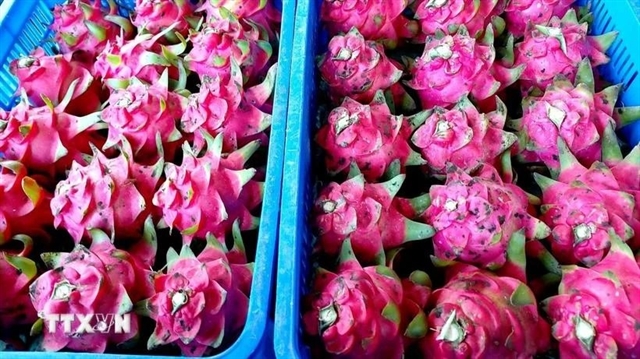 Economy
Economy

 |
| Vietnamese red-flesh dragon fruit. VNA/VNS Photo |
NEW DELHI — Vietnamese businesses are displaying their products at the World Food India 2024 (WFI 2024) that opened in New Delhi on Thursday.
Việt Nam is one of the two selected as Focus Country at WFI 2024, the third of its kind. The Southeast Asian nation has set up two pavilions, one covering 27sq.m and the other 150sq.m, showcasing agricultural products and processed food, including fresh and dried fruits, cashew nuts, coffee, tea, pepper, cinnamon, rice wine, and instant noodles, by more than 20 firms.
The selection of Việt Nam as Focus Country reflects India’s acknowledgement of the bilateral comprehensive strategic partnership, affirms Việt Nam’s role in the global food supply chain as well as the potential and quality of its agricultural products and processed food, and helps promote the country’s image to international friends, said Vietnamese Trade Counsellor in India Bùi Trung Thướng.
Meanwhile, the event offers an opportunity for Vietnamese enterprises to enhance their connectivity with partners, expand export markets, and stay updated on food processing and preservation technologies, he added.
Moreover, with the presence of many leaders from Indian ministries and agencies, the fair helps promote dialogue and policy cooperation, thus facilitating Việt Nam’s agricultural export, particularly plant quarantine and food safety processes, to the South Asian nation, the official continued.
Apart from Vietnamese businesses, WFI 2024, to last until Sunday, attracts the participation of firms from other 89 countries and 26 states of India.
India ranks second in the world in the field of food processing that contributes 13 per cent of its Gross Domestic Product (GDP), and is expected to reach US$535 billion in 2025-2026, with a growth rate of 15 per cent by 2030. — VNS




